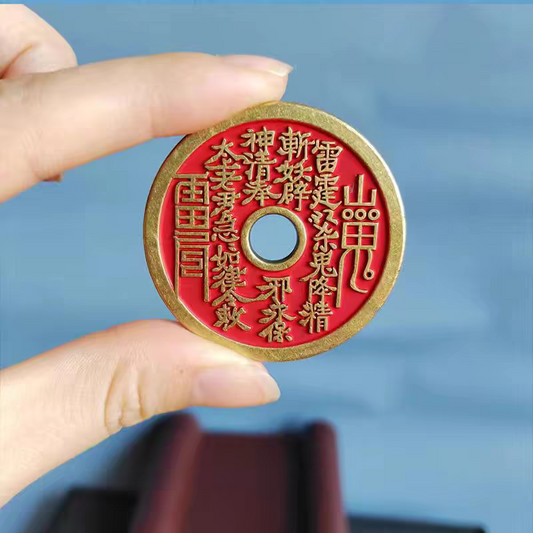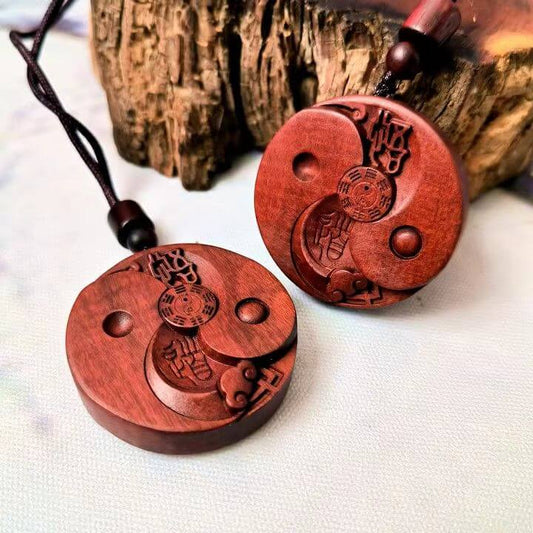
What reasons have kept Taoism prosperous and thriving all along?
paulpengShare
During the Three Kingdoms period, Zhang Lu, the leader of the Five Pecks of Rice Sect, ruled Hanzhong for nearly three decades. With political power in hand, the development was at his disposal. During this period, the Five Pecks of Rice Sect developed rapidly. As Zhang Lu, his father Zhang Heng, and his grandfather Zhang Daoling were all called "Celestial Masters", the Five Pecks of Rice Sect was also known as "The Way of the Celestial Masters". Later, Cao Cao attacked Hanzhong and Zhang Lu surrendered. The high-ranking officials of the Way of the Celestial Masters were forced to move to the capital Luoyang. Zhang Lu died in the second year after arriving in Luoyang. The Way of the Celestial Masters was leaderless and organizationally lax, falling into a development crisis. The secret for Taoism to not only overcome the crisis but also to continue to develop and thrive lies in "reform".

The main reform was carried out by Kou Qianzhi, a Taoist priest of the Northern Wei Dynasty, on the Northern Way of the Celestial Masters. When the Way of the Celestial Masters developed to the Northern Wei Dynasty, it was already full of drawbacks. At that time, the discipline of the Way of the Celestial Masters was lax, and the original Taoist rules were no longer suitable for the changed new situation. Many serious problems emerged within the Taoist sect.
Firstly, there was a serious corruption at the top level of Taoism. Taoist officials and jiujiu passed on their positions blindly, appointed themselves to administer Taoist talismans and contracts, and took people's gold, silver, and wealth. There were few who seriously practiced Taoism, but many who took the opportunity to amass wealth. Once they held important positions, they would never pass them on to others, practicing the system of father's position being inherited by the son, making the Taoist positions a family business.

Another hidden danger was planted by the founding Celestial Master Zhang Daoling. When Zhang Daoling founded the religion, the sexual arts in the bedroom were an important Taoist magic art. Zhang Daoling also wrote the "Yellow Book" to explain the art of the combination of yin and yang. But after a period of development, more and more Taoist priests who were muddling along under the guise of "sexual arts in the bedroom" emerged. These people "blindly passed on the yellow and red sexual arts in the bedroom and taught them to couples, and the obscene trend was prevalent". This had a very bad influence on society.
All these defects seriously hindered the development of the Way of the Celestial Masters. At this time, Kou Qianzhi emerged and carried out a rather thorough reform of the Way of the Celestial Masters. Kou Qianzhi was fond of immortality and had the heart of transcending the mundane in his early years. It is said that he practiced Zhang Lu's magic art since childhood and took medicinal pills for food, but it was ineffective for many years. Later, he met the immortal Cheng Gongxing and followed him to practice in Mount Hua, and then secluded himself in Mount Songshan for seven years to practice Taoism. Finally, he achieved success in practicing Taoism.
In the second year of the Shenrui era of the Northern Wei Dynasty, Kou Qianzhi claimed that the Supreme Lord Laozi came to Mount Songshan in person, bestowed upon him the position of the Celestial Master, and gave him the "New Precepts of the Chants in the Clouds". He also passed on the methods of regulating the breath and guiding the qi, and ordered him to proclaim this "new precept" and rectify Taoism.

So Kou Qianzhi began the vigorous reform of the Way of the Celestial Masters. He proposed that the Celestial Master and the jiujiu at all levels of Taoist officials could no longer be hereditary, claiming that "Heaven has no relatives, but only bestows upon the virtuous", abolishing the hereditary system of Taoist officials and changing it to select and appoint the virtuous and wise. He also prohibited the yellow and red sexual arts in the bedroom and forbade Taoist officials from taking people's money in various names. Since then, the appearance of the Way of the Celestial Masters has been completely renewed, generating new vitality.
The main task of the reformed Way of the Celestial Masters by Kou Qianzhi was to "assist the country and support the destiny", that is, to assist the country and support the true son of heaven. This undoubtedly contributed to governance. Therefore, Emperor Taiwu of Wei, Tuoba Tao, who supported the reform of the Way of the Celestial Masters, also joined the Taoist sect and recognized himself as the "True Lord of Great Peace", and changed the era name to "True Lord of Great Peace". It can be seen that the influence of the Way of the Celestial Masters at that time was significant. Undoubtedly, Taoism developed extremely rapidly in the Northern Wei Dynasty.
It can be seen that reform is the source of power for the development of Taoism. Although Kou Qianzhi's reform of the Northern Way of the Celestial Masters was carried out in the name of Laozi, the direction and effect of the implementation were very good. Later, whenever Taoism could reach a new level, the credit of "reform" was indispensable. Since the Ming and Qing Dynasties, Taoism has no major reform and has gradually declined.









